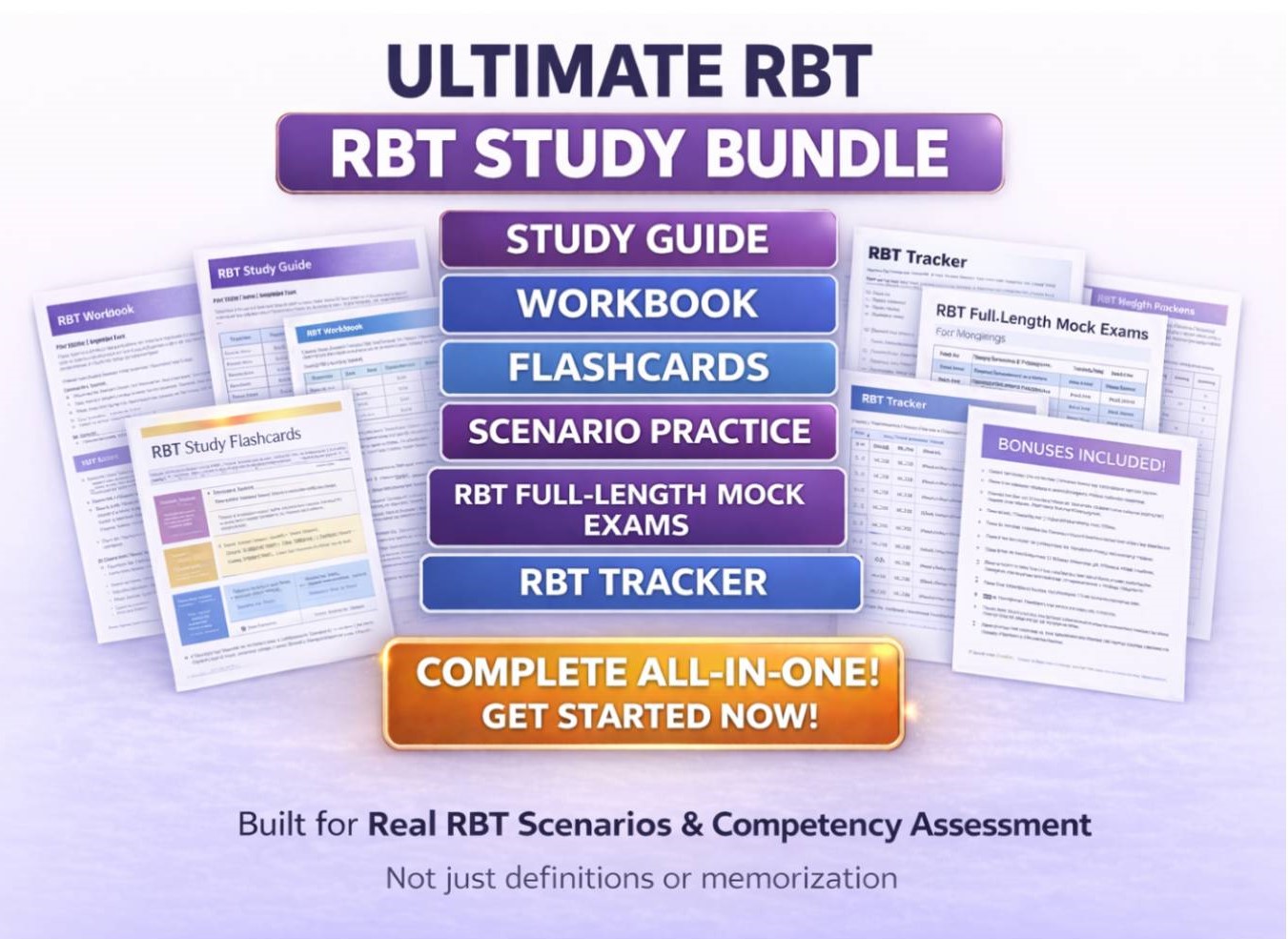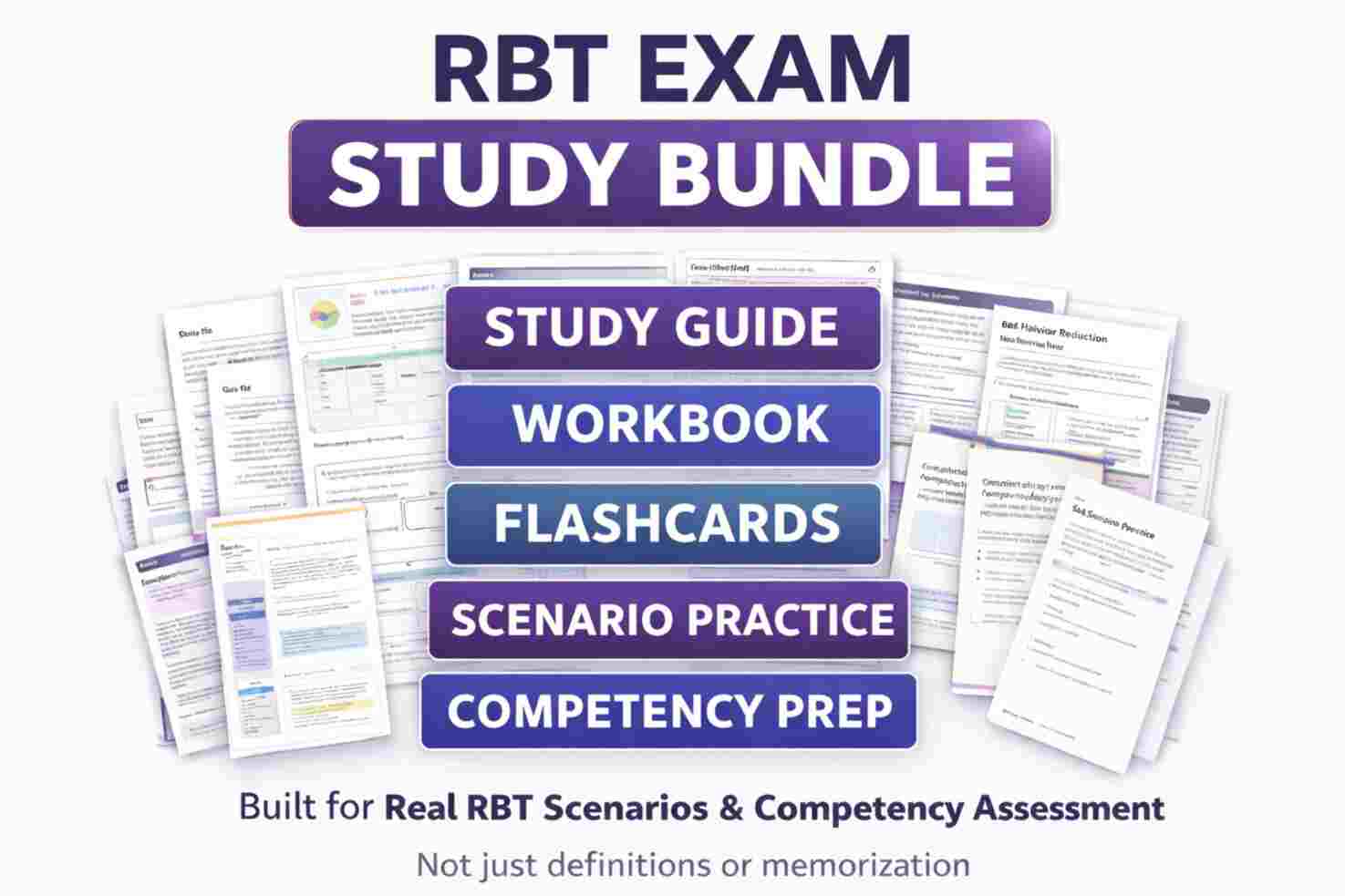Preparing for the RBT (Registered Behavior Technician) certification exam can feel stressful, especially if you’re unsure about what kinds of questions to expect or how well you’re doing in your studies. That’s why we’ve created a completely free RBT Practice Exam to support you through your preparation journey. This practice test is meant to give you a real feel of the actual exam while helping you identify areas where you need more practice.
The first mock test includes 75 carefully selected questions, they follow the latest guidelines and content areas required by the official exam. These questions cover a wide range of topics you’ll see on the real test, such as data collection, behavior measurement, reinforcement, skill acquisition, and ethics. Each question is designed to test your understanding of key concepts and how
By reviewing your mistakes and understanding the correct answers, you’ll be able to strengthen your weak areas and avoid making the same errors on the actual certification exam. Think of this practice test as a learning tool, not just a score sheet. It gives you a safe space to make mistakes and learn from them—without any pressure.
Also, doing this mock test can help build your confidence. Many people feel nervous before taking the real RBT exam because they don’t know what to expect. Practicing with a realistic test format can make you feel more familiar with the question style, pacing, and structure of the actual exam. This can reduce your anxiety and help you stay calm and focused when it’s time for the real thing.
RBT Practice Exam Test 1
Quiz Complete!
Tips and tricks
✅ 1. Know Your Scope of Practice
- Tip: RBTs do not design behavior plans or make treatment decisions.
- Strategy: If a question suggests making a decision without BCBA approval, it’s probably wrong. Always choose the option that includes consulting the supervisor or BCBA.
✅ 2. Supervision Rules Are Strict
- Tip: RBTs must receive supervision for at least 5% of their direct service hours every month.
- Trick: If a question mentions avoiding, skipping, or delaying supervision, it’s incorrect.
✅ 3. When in Doubt, Set a Boundary
- Tip: Never accept gifts, attend personal events, or maintain contact with clients after services.
- Trick: The safest answer is usually the one that protects professional boundaries.
✅ 4. Feedback Is a Gift
- Tip: Supervisors give feedback regularly. You should apply it and ask questions if needed.
- Strategy: Choose answers that show openness and professionalism, not defensiveness.
✅ 5. Always Refer to the BCBA
- Tip: If a parent asks for changes or expresses concerns, never give advice or modify plans yourself.
- Trick: Pick the option that says “refer them to the BCBA” or “discuss with supervisor.”
✅ 6. Watch for Dual Relationships
- Tip: Any personal connection (e.g., babysitting, social media contact, parties) = dual relationship.
- Strategy: If it sounds too friendly or personal, it’s likely a violation.
✅ 7. Confidentiality is Key
- Tip: Share client information only with authorized team members.
- Trick: Avoid options that mention discussing clients with friends, peers, or on social media.
✅ 8. Learn from the Language
- Red Flags in Wrong Options:
- “Offer personal advice”
- “Change the plan”
- “Skip supervision”
- “Accept a gift”
- “Do it without training”
- “Keep working without reporting”
- Green Flags in Right Options:
- “Refer to BCBA”
- “Follow the behavior plan”
- “Maintain professional boundaries”
- “Communicate within guidelines”
- “Apply supervisor feedback”
✅ 9. Practice with Purpose
- Tip: Don’t just read questions—analyze why the right answer is correct and why the others are not.
- Strategy: Make flashcards for each rule or concept you get wrong during practice.
✅ 10. Stay Calm and Logical
- Tip: These questions are designed to test ethics and judgment, not just memorization.
- Strategy: Imagine you’re on the job—what would a professional RBT do in that scenario?


